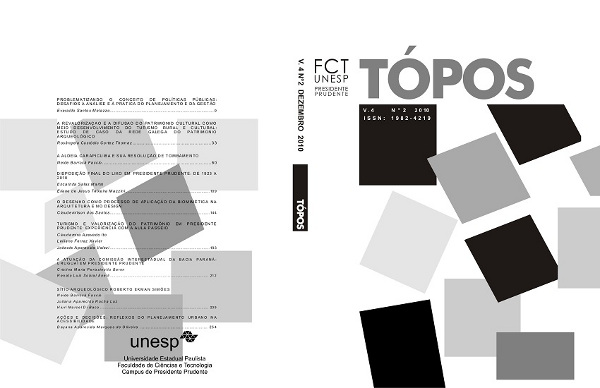TURISMO E VALORIZAÇÃO DO PATRIMÔNIO EM PRESIDENTE PRUDENTE: EXPERIÊNCIA COM A AULA PASSEIO
Resumo
Este trabalho é fruto da aplicação de conceitos pedagógicos desenvolvidos por Célestin Freinet, especificamente a metodologia da aula-passeio. A atividade foi aplicada em crianças, com visitas monitoradas a lugares de interesse turístico da cidade de Presidente Prudente. A premissa básica dessa experiência é a correlação existente entre turismo e educação, uma vez que, na prática do turismo está presente o processo de aprendizagem. Conceitos de diversas áreas do conhecimento são construídos e reelaborados, pois não se pode negar que ao visitar um lugar, o turista entra em contato com suas singularidades como as expressões artísticas e folclóricas, Geografia e História, entre outros, que podem estimular e enriquecer o arcabouço de conhecimento e conceitos desse indivíduo. Através de visitas monitoradas aos pontos turísticos da cidade, os estudantes podem construir conceitos referentes aos conteúdos da área de Geografia, da História e de temas transversais com muito mais facilidade, pois aprendem no contato com a totalidade do espaço vivenciado, não aquele descrito em material didático, mas aquele percebido como síntese de múltiplos espaços e tempos. A paisagem ganha significado, ao ser vivenciada pelo aluno, que passa a perceber sua construção e reconstrução, assim como os agentes atuantes no processo e, acima de tudo, acaba por se reconhecer como parte integrante desta realidade e como agente transformador da sociedade.
Palasvras-Chave: Turismo, Geografia
TOURISM AND VALUATION OF HERITAGE IN PRESIDENTE PRUDENTE: EXPERIENCE WITH THE RIDE CLASS
Abstract
This work is the result of applying teaching concepts developed by Celestin Freinet, specifically the methods of the ride class. The activity was applied to children, with supervised visits to places of tourist interest in the city of Presidente Prudente. The basic premise of this experiment is the correlation between education and tourism, since learning is present in tourism practice. Concepts from various areas of knowledge are constructed and reworked, because one cannot deny that when visiting a place, the tourist comes in contact with their uniqueness and artistic expressions and folklore, geography and history, among others, which can stimulate and enrich the framework of knowledge and concepts of that individual. Through guided visits to the sights of the city, students can build concepts regarding the contents of the geography, history and cross-cutting themes with much more ease as they learn with the whole of space experienced, not described in that teaching material, but the one perceived as a synthesis of multiple spaces and times. The landscape gains on meaning, to be experienced by the student, who begins to realize its construction and reconstruction, as well as active agents in the process and, above all, turns out to be recognized as an integral part of this reality and society as a transforming agent.
Keywords: Tourism, Geography,

